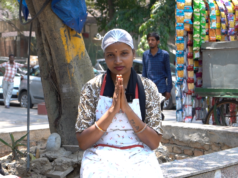On Thursday, the National Crime Records Bureau released its report, Accidental Deaths and Suicides in India 2010. Domestically, the headline was that, for the second year in a row, Bangalore was India’s suicide capital, while internationally, the statistic picked up and reported was a rate of 15 suicides per hour across the country as a whole. Either way, the report was disturbing.
It was the 15 per hour that got my attention and prompted me to start digging. One must always be a little bit careful with these sorts of statistics when it comes to India because of the size of the population. Yes, 15 an hour is 15 too many, but how does it compare to other countries? Is the rate a lot higher than everywhere else?
The answer is no. India ranks somewhere in the low 40s in suicide rate internationally – still in the top half, so way too high, but with lower rates than many countries in Western Europe, the US, Japan, and Australia. What is most worrying is that, after levelling off and then even dipping slightly in the early 2000s, the rate is now increasing again – from 10.9/1,00,000 in 2009 to 11.4/1,00,000 in 2010. Why is that?
One of the groups with the highest numbers of suicides is farmers. When you look at the statistics, the 15,964 farmers who committed suicide last year really jump out at you. Indeed, the international coverage in particular draws out that figure. And, of course, farmer suicides are something we have all heard about in the press. Why are farmers resorting to suicide in such large numbers? Clearly there is something wrong with that sector that makes farmers feel so completely hopeless.
In a 2008 report, the World Bank cited over-regulation of domestic agriculture trade and government interventions in labour, land, and credit markets as two of the primary problems plaguing Indian agriculture and rural development. It argued that “…over-regulation of domestic trade has increased costs, price risks and uncertainty, undermining the sector’s competitiveness” and that “More rapid growth of the rural non-farm sector is constrained by government interventions in factor markets — labor, land, and credit — and in output markets…”
If the World Bank is right and government policy is making growth in the farming sector more difficult, then is that government policy significantly contributing to this huge number of farmer suicides? If the hopelessness that farmers are suffering is due to an inability to support themselves and their families, pay off loans, and keep their businesses afloat, then surely government policies that make growth more difficult have to be a factor in the economic hardships that farmers face and that lead so many to see suicide as the only way out.
This is why policy matters – because it ends up affecting the real lives of real people. Most farmers, indeed most Indians of any profession, are not hugely involved in politics or the details of public policy. Most people are not interested in what bill is going through parliament or the latest set of regulations from the Ministry of Agriculture. They just want to get on with living their lives, doing their jobs, and raising their families. But public policy and government regulations affect everyone’s ability to do those things, and when the government gets those policies and regulations wrong, the consequences can be devastating, as they have been for so many farmers, their families, and whole communities.
No doubt the government’s policies have been well-intentioned. No one set out to make the lives of farmers more difficult. However, a stifling of the sector and increased difficulty for farmers have been the results. The government should recognise that and change their policies, scrapping the over-regulation and interventions that so severely limit farmers’ freedom in the area of their livelihoods. In doing so, they could increase prosperity, decrease hopelessness, and perhaps begin to address the tragedy that is India’s suicide rate.
Post Disclaimer
The opinions expressed in this essay are those of the authors. They do not purport to reflect the opinions or views of CCS.





